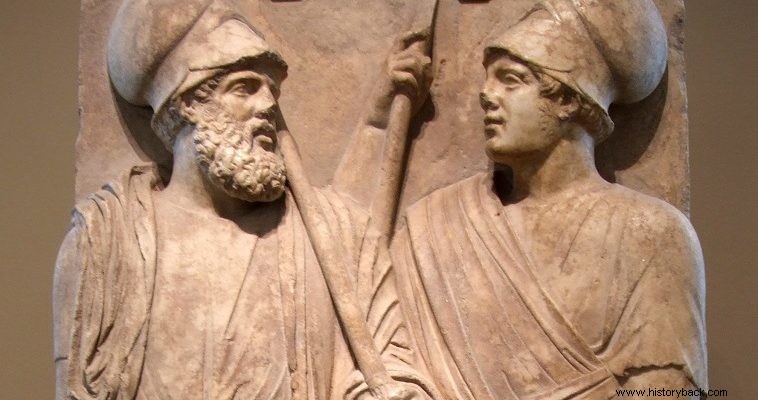
The kingdom of the Cimmerian Bosphorus is a special case among the other Hellenistic kingdoms. Its history is intertwined with the Second Colonization, when Greeks from Miletus, as well as other cities, founded new cities on the shores of the Sea of Azov, then known as Lake Mayo and in the Crimea, up to the Taman peninsula and its estuaries river Don.
In the Crimea the great cities of Kerkinitis, Theodosia, Hersonissos, Nymphaeum, Cimmeria, Myrmikio and Pontikapaio were built, in Taman the cities of Phanagoria, Hermonassa and Gorgippia were built and, much later, in the Don the city of Tanais.
The cities were independent until 480 BC. some of which were united under the Archaeoanaktid dynasty that came either from Lesbos or from Miletus. In 438 BC however, the dynasty was overthrown by Spartacus or Spartatus, who is believed to have been a Thracian mercenary, possibly from the Odrysian tribe, which is directly related to the Greeks.
However, the Spartans did not immediately prevail in all cities. They had to fight to do it. The Spartakid dynasty remained in power until 108 BC when the kingdom came under the rule of the well-known king of Pontus, Mithridates St Eupatorus.
It is worth noting that the Spartans bore the title of lord towards their Greek subjects and the title of king towards the barbarians. He succeeded Spartacus in 431 BC. the son of Satyros I who reigned until 387 BC. and expanded the state by bringing under his control most of the Greek cities of the region.
The city of Nymphaeum, for example, was incorporated into the state by Satyr's successor Lefkonos (387-347 BC). He was succeeded by his son Parisadis A. His death in 310 BC. resulted in the outbreak of civil war between the sons of Eumelos and Satyros B. The winner was Eumelos who ruled until 303 BC. He was succeeded by Spartacus III and him by Pairisades II who reigned until 245 BC.
He was followed by Spartokos D and Lefkon B. After his assassination (220 BC) the reins of the state were taken over by the only non-member of the archon family, Hygiainas who ruled until 200 BC . This was followed by Spartokos E, Pairisadis C, Pairisadis D and Pairisadis E, who proved unable to repel the barbarian raids. Pairisades E handed over the kingdom to Mithridates of Pontus.
The Bosphorus kingdom was not Greek, it was Hellenistic. However, Greek culture was dominant and Greek was the official language as evidenced by the inscriptions on coins and not only that have been discovered. King Lefkon even had the title of Athenian citizen, maintaining excellent relations with the city of Pallas, which he supplied with grain.
After the defeat of Mithridates by the Romans, the kingdom came under the control of his son Pharnakes. He too was defeated by the Romans. The kingdom came under the control of their daughter Franakis Dynamis and her husband Asandros, with the consent of Octavian Augustus.
After the death of Asander, with the intervention of the Romans, the kingdom was ruled by Polemon (16 BC – 8 AD) who was succeeded by Asander's son Aspurgos. He ruled until 38 AD. but establishing his own dynasty that lasted until 341 AD The last king was Riskouporis St. The kingdom was eventually overthrown by the Goths.
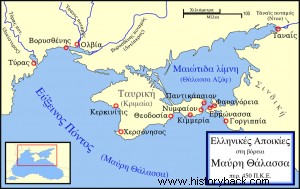
Map of the main Greek cities in the region of Crimea - Sea of Azov - Taman Peninsula.
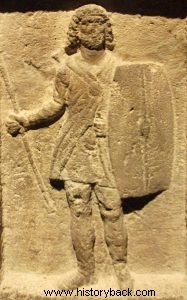
Tombstone of the soldier Staphylos from Pontikapaio.
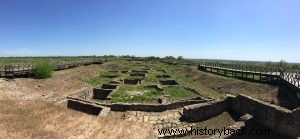
The archaeological site of the city of Tanais on the Don.
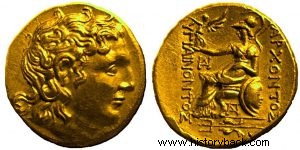
Coin of the lord Hygiainontos with a Greek inscription.
